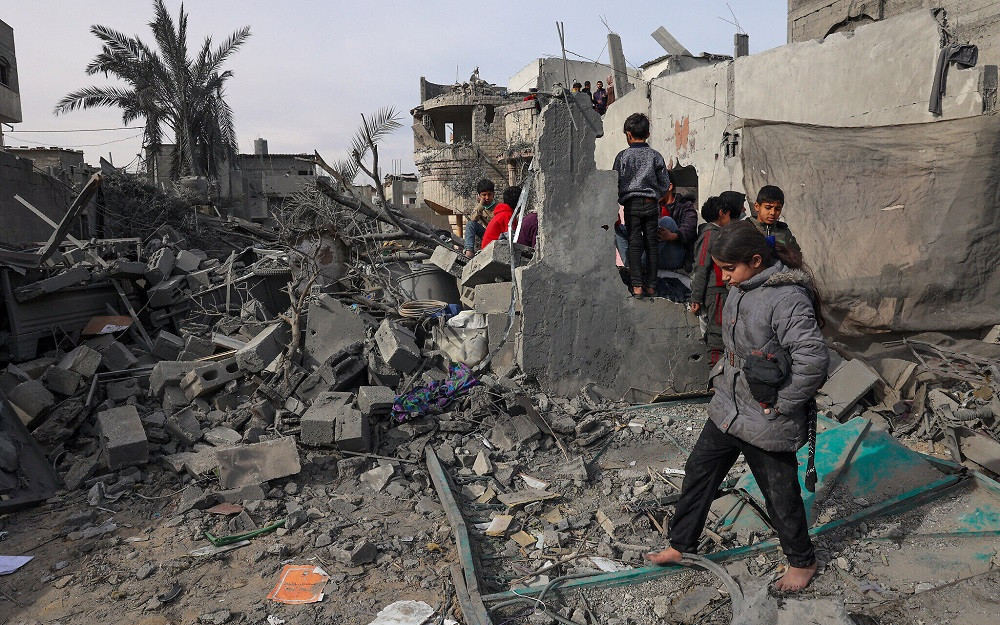Israeli leaders decry army's Gaza war pauses
Daily Sun Report, Dhaka
Published: 17 Jun 2024, 12:27 PM

A site of destruction caused by Israeli strikes in Rafah, Gaza | Photo: AFP
Israeli Prime Minister Benjamin Netanyahu and some other right-wing members in the ruling coalition have denounced the army's decision to pause its offensive for 11 hours everyday on a road for allowing humanitarian aid entry into Rafah.
Israel's military has clarified that normal operations would continue in Rafah, the war-torn Gaza Strip's last standing city, and that the pauses would be effective only along a 10-km road.
And yet, "when the prime minister [Netanyahu] heard the reports of an 11-hour humanitarian pause on Monday morning, he turned to his military secretary and made it clear that this was unacceptable to him," an Israeli official said.
National Security Minister Itamar Ben-Gvir, who leads one of the nationalist religious parties in Netanyahu's ruling coalition, denounced the idea of a tactical pause, saying whoever decided it was a "fool" who should lose their job.
Through their rejection, Israeli leaders are also continuing their defiance of international calls and outrcries demanding aid flow into Rafah for the city's starving Palestinians.
The spat was the latest in a series of clashes between members of the coalition and the military over the conduct of the war, now in its ninth month.
It came a week after centrist former general Benny Gantz quit the government, accusing Netanyahu of having no effective strategy in Gaza.
However, Israeli army's decision to observe tactical pauses might only be an act of eyewashing its atrocious crimes in Gaza. Contrastively, Netanyahu's opposition could also be stemming from his need to project a strongman image before his conservative and covetous voter base.
Rafah in southern Gaza is the enclave's last remaining major city. However, the city could also suffer the destructive fate of the erstwhile two largest ones as it has become the main focus of Israel military's operation in Gaza, where eight soldiers were killed on Saturday.

